Select Insert > Knowledge Templates > Power Copy...
.
The Powercopy Definition dialog box appears.
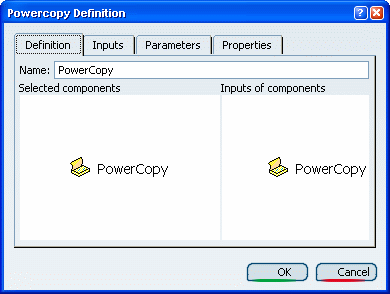
Select the elements making up the Power Copy from the
specification tree.
For the purposes of our scenario, select Part
Body.
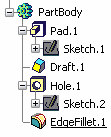
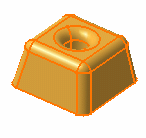
The dialog box is automatically filled with information
about the selected elements.
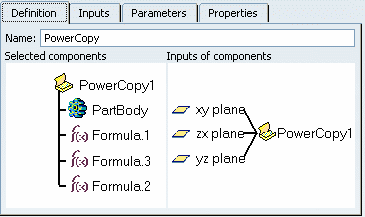
Define the PowerCopy as you wish to create it:
The
Definition tab lets you assign a name to the powercopy and
presents its components in the 3D viewer. For example, enter Test in the
Name: box.
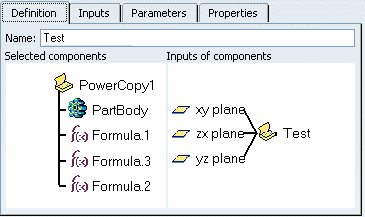
The Inputs tab lets you define the reference
elements making up the Power Copy. You
can rename these elements for a clearer definition by selecting them in
the viewer and entering a new name in the Name box. In
parentheses you still can read the elements' default name based on its
type. For example, select xy plane and rename it as "Plane1".
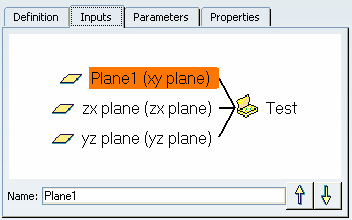
The Parameters tab lets you define which of
the parameter values used in the Power Copy you will be able to modify at
instantiation time. This can be a value, or a formula for example. Simply select the parameters and check the
Published
Name button. In case of a formula, you can set it to false or true.
For example, select PartBody/Hole.1/Diameter.
Use the Name box to give a more explicit name to this
element. For example, enter Hole.1.
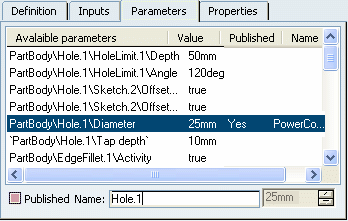
Click the Properties tab.
This tab lets you modify the icon
identifying the PowerCopy in the specifications tree. A subset of icons
is available from the Icon choice button. If you click ... the
Icon
Browser opens, showing all icons loaded on your application
session. Click
 .
.
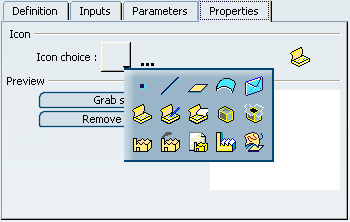
The Grab screen button lets you capture an
image of the Power Copy to be stored with its definition. Click the Grab screen button. You can zoom in or out the image to adjust it.
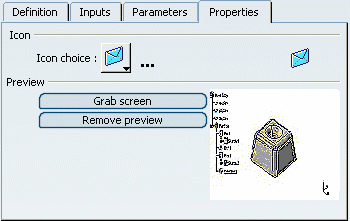
Click the Remove previewbutton if you do not
need this image.
Click OK to create the Power Copy.
The Power Copy is displayed close to the top of the specification tree.
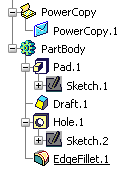
Notes:
- Double-click Test in the specification tree to
display the Power Copy Definition dialog box and edit its
contents.
- A formula is automatically included in a Power Copy
definition when all its parameters are included. Otherwise, i.e. if at least one parameter is not selected as part of the
Power Copy, you have to manually select the formula to make it part of
the definition. If you do so, all the formula's parameters that have not
been explicitly selected, are considered as inputs of the Power Copy.
- Measures and user features cannot be used as elements
making up power copies.